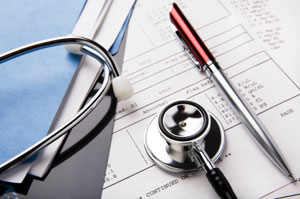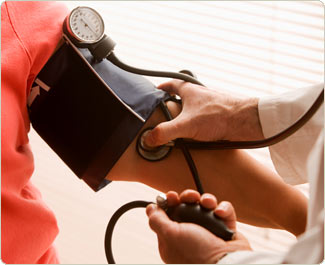 Here are 8 lifestyle changes you can make to control your high blood pressure.
Here are 8 lifestyle changes you can make to control your high blood pressure.
Watch your waistline
Blood pressure often increases as weight increases, so losing just 10 pounds (4.5 kilograms) can help reduce your blood pressure. In general, the more weight you lose, the lower your blood pressure.
Exercise
Regular physical activity — at least 30 to 60 minutes most days of the week — can lower your blood pressure 4 to 9mm Hg. If you haven’t been active, increasing your exercise level can lower your blood pressure within just a few weeks. Make sure to talk with your care practitioner about developing an exercise program that’s right for you.
Avoid being a “weekend warrior” , because those sudden bursts of activity could actually put you at risk.
Eat healthy
Eating a diet that is rich in whole grains, fruits, vegetables and low-fat dairy products and limits saturated fat can lower your blood pressure by up to 14 mm Hg.
Reduce sodium
Even a small reduction in the sodium in your diet can reduce blood pressure by 2 to 8 mm Hg. Limit your sodium intake to 2,300 milligrams (mg) a day or less. Remember to read food labels, and that processed foods are high in sodium.
Alcohol consumption
Alcohol can be both good and bad for your health. In small amounts, it can potentially lower your blood pressure by 2 to 4 mm Hg. But that protective effect is lost if you drink too much alcohol — generally more than one drink a day for women and two a day for men.
Avoid tobacco products
We all know the dangers of smoking, but did you know that the nicotine in tobacco products can raise your blood pressure by 10 mm Hg and for up to an hour after you smoke.
Sleeping
People who sleep five hours or less a night may be at higher risk of developing high blood pressure or worsening already high blood pressure. Sleep helps your blood regulate stress hormones and helps your nervous system remain healthy. Over time, a lack of sleep can hurt your body’s ability to regulate stress hormones, leading to high blood pressure.
Reduce your stress
Stress or anxiety can temporarily increase blood pressure. Take some time to think about what causes you to feel stressed such as work, family,or finances. Once you know what’s causing your stress, consider how you can eliminate or cope with stress in a healthier way such as getting a massage, acupuncture or start a yoga class.
As with any major health change, please consult a health care practitioner before you start your new health routine.

 Diabetes is a chronic condition that stems from the body’s inability to sufficiently produce/properly use insulin which the body needs to use sugar as an energy source. Diabetes can lead to
Diabetes is a chronic condition that stems from the body’s inability to sufficiently produce/properly use insulin which the body needs to use sugar as an energy source. Diabetes can lead to 

